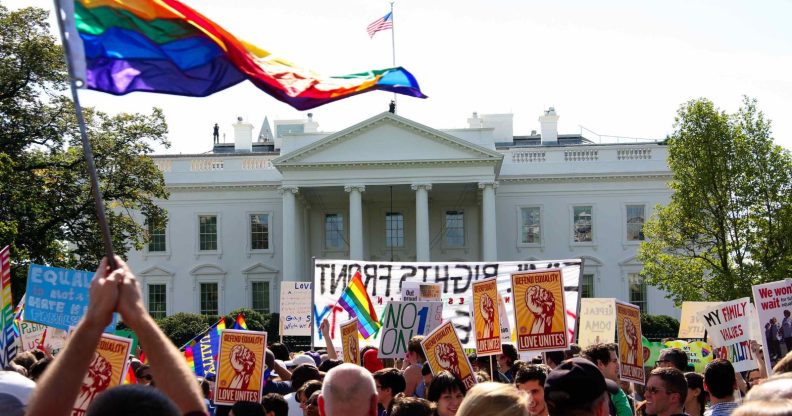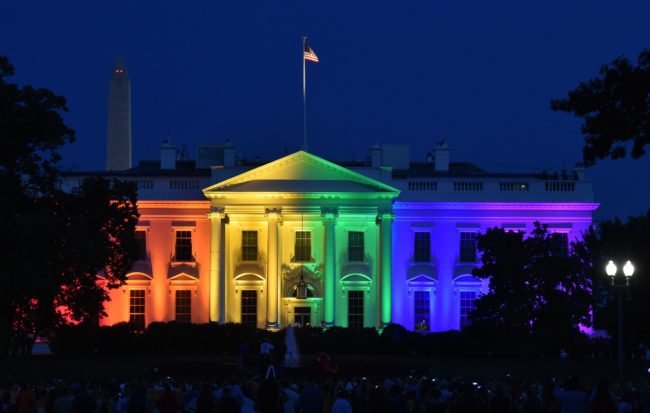LGBT adults in the US are less likely to have health insurance or be employed, study finds

The group argues the ban on sex discrimination does not cover LGBT employees (Maria Belen Perez Gabilondo/AFP/Getty Images)
The group argues the ban on sex discrimination does not cover LGBT employees (Maria Belen Perez Gabilondo/AFP/Getty Images)
Lesbian, gay, bisexual and transgender adults in the US are less likely to have health insurance or have jobs, a study suggests.
The study, published in the journal BMJ Open, found LGBT people are more likely to have poorer health and a lower quality of life than heterosexual adults, mostly because of bias.
Researchers examined 10,000 survey responses from 18- to 32-year-olds taking part in an ongoing study that began in 1996, which collected information on sexual identity and orientation, along with other health, lifestyle and environmental data.
Participants were asked whether they had been employed, uninsured and if they had received a routine physical health examination in the previous year.
They were also asked to rate their self-care, levels of pain and discomfort, their mental health and their capacity for routine activities.
Using data from a 2013 follow-up survey, researchers found that both male and female sexual minorities were around twice as likely to have been unemployed and uninsured over the prior year, compared to their straight peers.

The study highlights 28 states have have no employment non-discrimination law covering sexual orientation (MLADEN ANTONOV/AFP/Getty Images)
In the group, 7.5 percent were unemployed or not working because of illness or disability and 38 percent lacked access to a routine physical health exam.
Gay men were almost 50 percent more likely to be unemployed due to illness or disability, compared to 84 percent of gay women.
Bisexual women were nearly four times as likely to be uninsured that straight women.
The majority of participants were white and from relatively affluent families, so these disparities may be even wider, the researchers suggest.
“These sexual-orientation disparities in employment and health insurance in a population with high social status highlight the ubiquity of sexual orientation inequities in the employment and healthcare systems,” the researchers noted.
The study suggests legislation may hold the answer to improving healthcare and employment prospects for LGBT people.
Although the US Supreme Court extended marriage rights to same-sex couples, the researchers highlight, inequalities are likely to persist because 28 US states currently have no employment non-discrimination law covering sexual orientation.

A recent report warned the Trump administration will have a dire impact on LGBT health (Photo by Olivier Douliery-Pool/Getty Images)
Three of these states have laws preventing the passage or enforcement of local non-discrimination laws.
“Until all people, regardless of sexual orientation, are treated equally in the eyes of the law, including with non-discrimination laws protecting employment, as well as housing, public accommodations and credit/lending, sexual orientation-related health disparities will persist,” the researchers wrote.
A recent report by Human Rights Watch found Donald Trump’s administration is likely to have “devastating consequences” for LGBT people, as the government rolls back anti-discrimination protections and introduces religious exemption laws.
The report particularly highlighted the plight of transgender people in the US.
In February 2017, the US government officially revoked guidance introduced by the Obama administration which protected trans students in public schools.
Earlier this year, the Trump administration reversed rules allowing trans prisoners to use facilities that match their gender identity, such as bathrooms and cell blocks.

